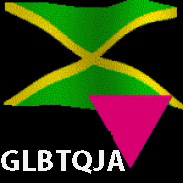COGH-Goldings-Dinner-Nov-28-09
UNITED NATIONS, New York (CMC) —
HIV/AIDS campaigners said they were disappointed by Jamaica’s presentation as the spouses of government and state leaders spoke on a UNAIDS programme to eliminate new infections of the disease, now passing its 30-year milestone.
Lorna Golding, wife of Prime Minister Bruce Golding, was among 30 ‘First Ladies’ from the Caribbean, Latin America, Africa and Asia who gathered at the United Nations in New York last week to mobilise support around achieving the Joint United Nations Programme on HIV/AIDS’ (UNAIDS) vision of zero new HIV infections among children by 2015. The event was held while their spouses and diplomats met for a UN high-level meeting on AIDS.
Panos Caribbean, the information and communication non-governmental organisation, reported on reaction to the session involving Golding and her counterparts which was focussed on first spouses’ role in eliminating new HIV infections in children.
In a brief presentation that invoked the Jamaica national pledge, Golding announced that Jamaica has successfully reduced HIV transmission from mother to child since the inception of its Prevention of Mother-to-Child Transmission programme in 2004, Panos said.
“The number of HIV-positive pregnant women receiving antiretroviral medication has increased significantly from 47 per cent in 2004 to 83 per cent in 2009. This has led to a dramatic reduction in mother-to-child transmission of HIV from 25 per cent in 2002 to below five per cent since,” she said.
HIV/AIDS campaigners representing civil society who attended the session told Panos Caribbean they felt Golding’s presentation was disappointing and lacked clarity in what her plans were for eliminating vertical transmission of HIV.
“I’m disappointed that there were no specific commitments made by the First Spouse on this very critical issue. She only quoted from our national prayer that ‘under God’ Jamaica will play her part in advancing the welfare of the whole human race. I’m surprised she didn’t seize the opportunity to seek specific assistance from the international community to support prevention of vertical transmission in Jamaica,” legal advisor, Marginalised Groups AIDS-Free World, Maurice Tomlinson, told Panos Caribbean.
“She gave no indication as to what she or the Government plans to do. This makes it palpably clear she and the Government failed to understand the issue of vertical transmission which is not going away but is festering and threatens to explode in our high-sex and multiple/concurrent partners’ context,” Tomlinson added.
Director of programmes and training at Eve for Life, Joy Crawford, also told Panos Caribbean that Golding’s contribution lacked specifics or any clear action plan, strategies or projects that she would undertake.
“In her promise to play her part in upholding the national pledge ‘Before God and all mankind’ we anticipate she will develop clear advocacy and interventions that will reduce the current societal, familial and moral stigma and discrimination faced by the young pregnant adolescent female especially those identified as HIV positive,” Crawford said.
Sophia Martelly, the wife of Haiti’s newly inaugurated President Michel Martelly, committed to working to involve more Haitian men in reducing the rate of mother-to-child transmission of HIV. She also pledged to improve sex education for teens and to support programmes that empower women and improve their economic status.
Around 1,000 babies worldwide are infected with HIV every day, UNAIDS estimates, 90 per cent of whom are in sub-Saharan Africa. HIV is also the leading cause of maternal deaths in developing countries.
The spouses agreed to advocate for comprehensive and integrated access to maternal and child health services. They also committed themselves to pressing for an end to gender inequality, gender violence, discrimination and unfair laws that prevent pregnant women from accessing HIV testing and counselling, prevention, treatment and support services.


You must be logged in to post a comment.